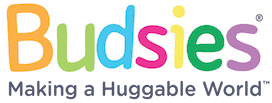It is important that you understand that as parents, you are and will be the most important “teachers” in your children’s lives and, therefore, the ones who will have the greatest influence on them. Therefore, if you want them to be interested in learning, it is imperative that you as a family be actively involved in their learning.
Here are 8 strategies you can follow to help your children throughout their years in school.
Be a Support for Them
1. It is important that you are there for both successes and failures
Remember that we don’t all learn at the same pace, and encouraging a positive attitude will accomplish more than a defeatist attitude. According to the best essay writing services, if you can get them to believe that they can achieve their goals, if they are consistent and really work for it, that is a very important aspect for them to succeed.
If you can also let them know that they are not alone, that you trust them, and that as parents you are willing to help in any way, they will be even more able to achieve it.
2. Be interested in how the course is going
The best way to find out is to ask. Ask them how their day was, what classes they had today, what new things they learned, and what they liked best. Talking to them will help you learn a lot of things you wouldn’t otherwise know. Your relationship with them will develop and your trust will grow.
It will also allow you to find out if they are having problems in a particular subject if they are struggling… That way you can buy argumentative essays online for them or get in touch with their teachers and find out what action to take.
3. Have a positive attitude toward learning
As we mentioned in previous posts, setting an example is very important. Everything you say and do can help them develop a positive attitude and more confidence. If you show them at home the value of education, you will make a positive contribution to their learning by letting them know that it brings many benefits, so the effort is worth it.
Participate in Their School Life
4. Get to know their teachers and the people who are part of their daily lives
Making first contact with the teachers who will be involved in your children’s academic and personal education is important. These people are responsible for their academic preparation and help them grow socially and emotionally, so parents need to connect with them from the beginning.
5. Participate in school meetings and maintain contact with the school
As we said in the previous paragraph, in addition to the school organizing meetings and study sessions to inform parents, if you are concerned about any aspect of your children’s education, ask for a meeting to discuss the issue with their teachers.
Encourage Their Learning at Home
6. Participate in their learning
This can be a good time to spend time together. Encourage active learning through educational games, reading, and activities that stimulate them and help them grow and develop their intelligence at home. If they have the opportunity to share this time with you, their interest in learning will be even greater.
7. Do cultural activities as a family
This is a great way to spend time as a family, strengthen bonds by enjoying activities together, and gain knowledge during family time.
8. Teach them to be responsible and independent
Always keeping their age in mind, you need to gradually instill in them a sense of responsibility and independence as they develop in school. The child should take more and more responsibility for their actions and tasks at school and home. They need to be taught to be independent so that they learn to cope independently and know how to accept the consequences of their actions.
In short, we will not only help our children to join a more organized life, but we can apply it with them to be a better example for them.



